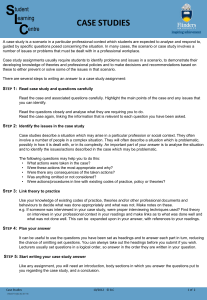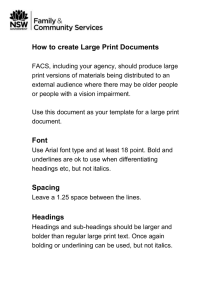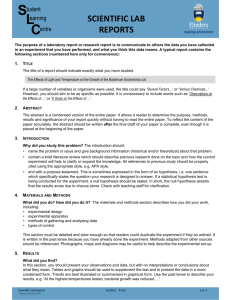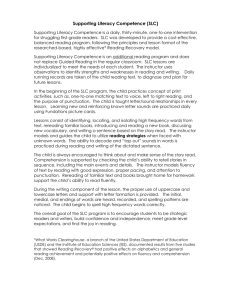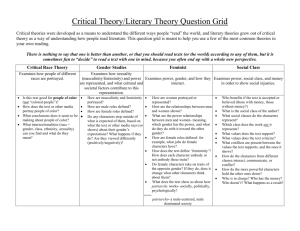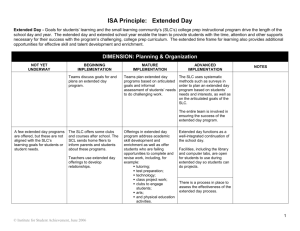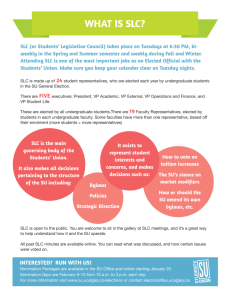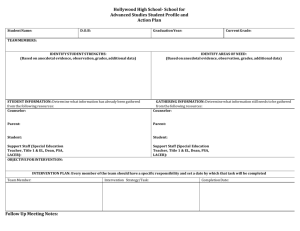Case Studies (PDF 81KB)
advertisement
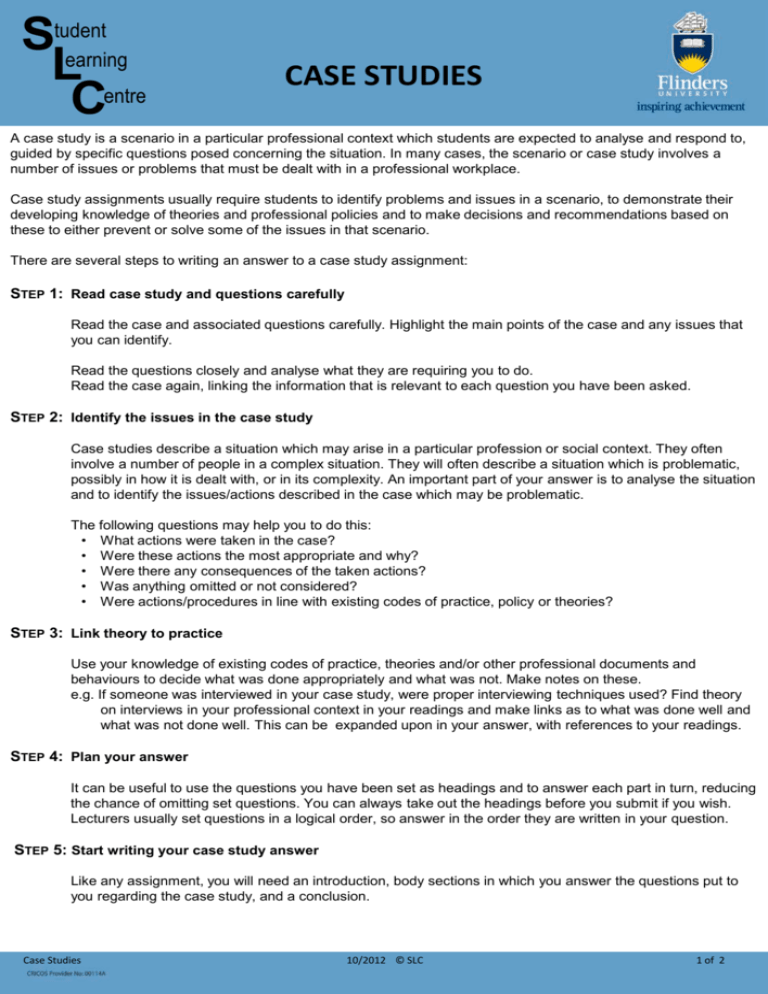
Student Learning Centre CASE STUDIES A case study is a scenario in a particular professional context which students are expected to analyse and respond to, guided by specific questions posed concerning the situation. In many cases, the scenario or case study involves a number of issues or problems that must be dealt with in a professional workplace. Case study assignments usually require students to identify problems and issues in a scenario, to demonstrate their developing knowledge of theories and professional policies and to make decisions and recommendations based on these to either prevent or solve some of the issues in that scenario. There are several steps to writing an answer to a case study assignment: STEP 1: Read case study and questions carefully Read the case and associated questions carefully. Highlight the main points of the case and any issues that you can identify. Read the questions closely and analyse what they are requiring you to do. Read the case again, linking the information that is relevant to each question you have been asked. STEP 2: Identify the issues in the case study Case studies describe a situation which may arise in a particular profession or social context. They often involve a number of people in a complex situation. They will often describe a situation which is problematic, possibly in how it is dealt with, or in its complexity. An important part of your answer is to analyse the situation and to identify the issues/actions described in the case which may be problematic. The following questions may help you to do this: • What actions were taken in the case? • Were these actions the most appropriate and why? • Were there any consequences of the taken actions? • Was anything omitted or not considered? • Were actions/procedures in line with existing codes of practice, policy or theories? STEP 3: Link theory to practice Use your knowledge of existing codes of practice, theories and/or other professional documents and behaviours to decide what was done appropriately and what was not. Make notes on these. e.g. If someone was interviewed in your case study, were proper interviewing techniques used? Find theory on interviews in your professional context in your readings and make links as to what was done well and what was not done well. This can be expanded upon in your answer, with references to your readings. STEP 4: Plan your answer It can be useful to use the questions you have been set as headings and to answer each part in turn, reducing the chance of omitting set questions. You can always take out the headings before you submit if you wish. Lecturers usually set questions in a logical order, so answer in the order they are written in your question. STEP 5: Start writing your case study answer Like any assignment, you will need an introduction, body sections in which you answer the questions put to you regarding the case study, and a conclusion. Case Studies 10/2012 © SLC 1 of 2 Introduction Your introduction should always make clear to your reader what topic you are going to discuss and how you will do so in your assignment. If you have taken the time to read your questions carefully, have done your reading and have planned your answers, you should have a clear idea about what you are about to write. Introductions move from general to more specific information to introduce your topic. The last sentence should be a thesis statement, which tells the reader clearly what to expect. Example statement: ThisThis paper examines the the procedures thatthat were followed when Tom, an an Examplethesis thesis statement: paper examines procedures were followed when Tom, elderly homeless man was brought into a public hospital with chest pains and difficulty in breathing. elderly homeless man was brought into a public hospital with chest pains and difficulty in breathing.It critically examines these procedures withwith reference to the fivefive dimensions of health andand makes It critically examines these procedures reference to the dimensions of health makes recommendations recommendationsfor forimproving improvingmedical medicaladmission admissionprocedures. procedures. Body paragraphs This is where you begin to discuss the case study. Depending on how many questions you have been set and how much discussion is involved in answering each one, you must decide on the number of paragraphs required for each question. You may have, for example, four paragraphs addressing one question and only one paragraph for another, depending on its complexity. There should be one main point for each paragraph. Including headings can help to make your answers clearer and often helps to avoid repetition or rambling. Keep in mind your total word count for your assignment. Conclusion Your conclusion needs to draw together all of the main points you have made in the body of your assignment, without adding anything that has not been discussed in the body. Spend time on it as it is the last part of your assignment that your tutor will read before grading you. It should make them think, ‘yes, all of the issues have been addressed and answered fully. STEP 6: Edit and proofread As with all assignments, use the spell checking tool on your computer and then read through your paper yourself to detect and correct other errors and omissions. Check you have answered all of the questions and backed up your answer with relevant literature. Check that you have followed your tutor’s instructions, that you have acknowledged all sources of information correctly and that all of your references are in your reference list. Does your paper demonstrate that if you were a professional working in this particular situation, you would know what policies and procedures should be followed, or what actions to take to deal professionally with the situation? If so, it is ready to submit. STUDENT LEARNING CENTRE REGISTRY BUILDING ANNEXE TEL: 61-8-8201 2518 E-MAIL: slc@flinders.edu.au INTERNET: http://www.flinders.edu.au/SLC POSTAL: PO BOX 2100, ADELAIDE, SA 5001 Case Studies 10/2012 © SLC 2 of 2
